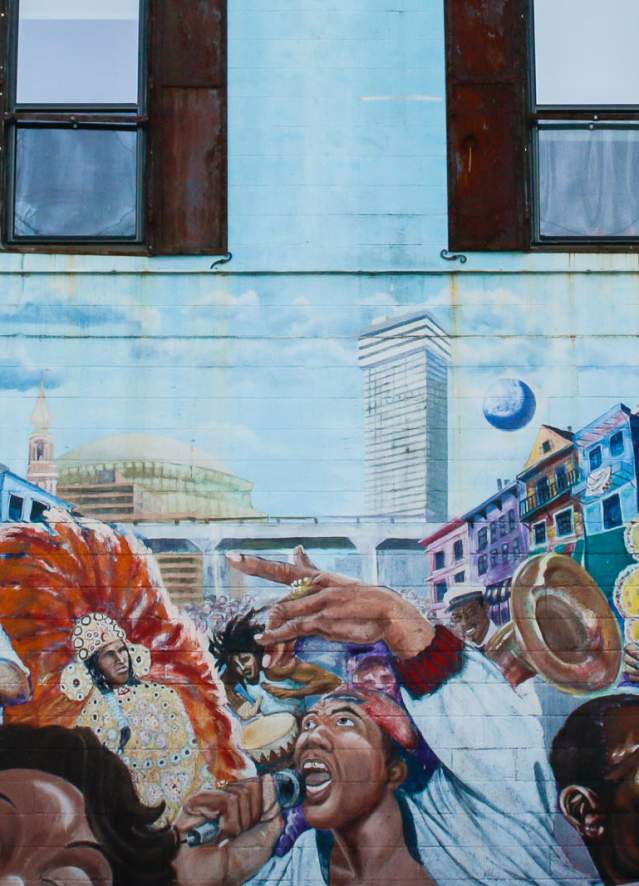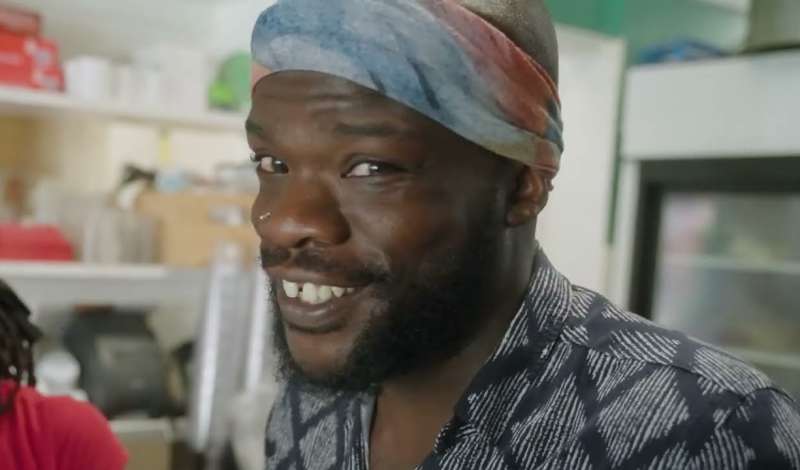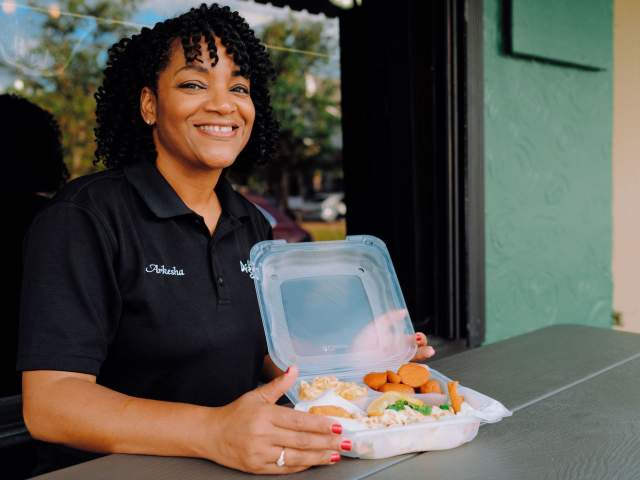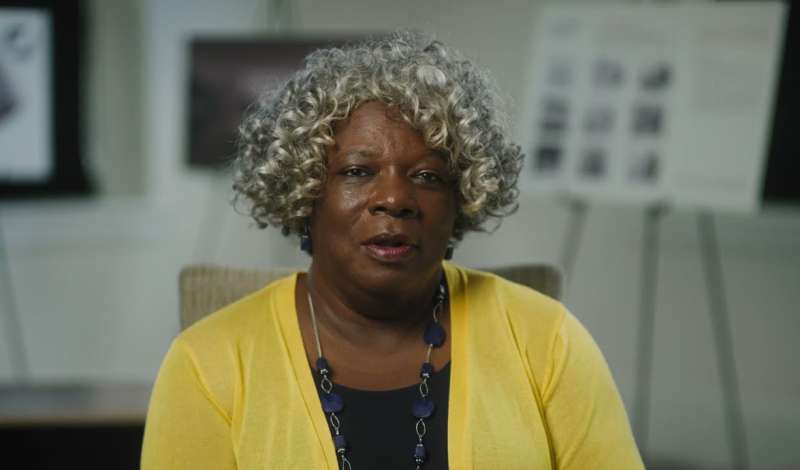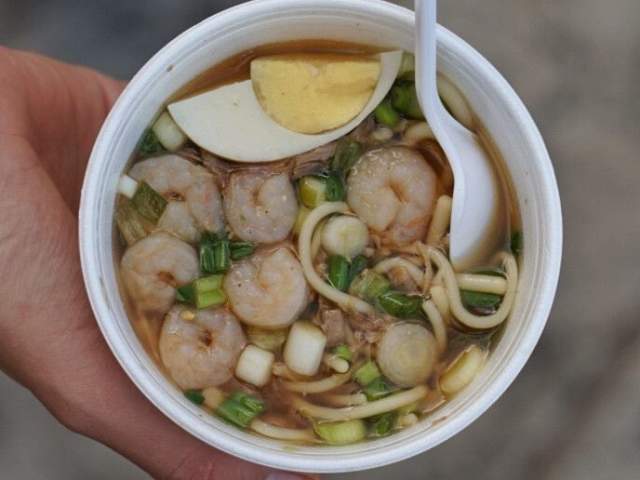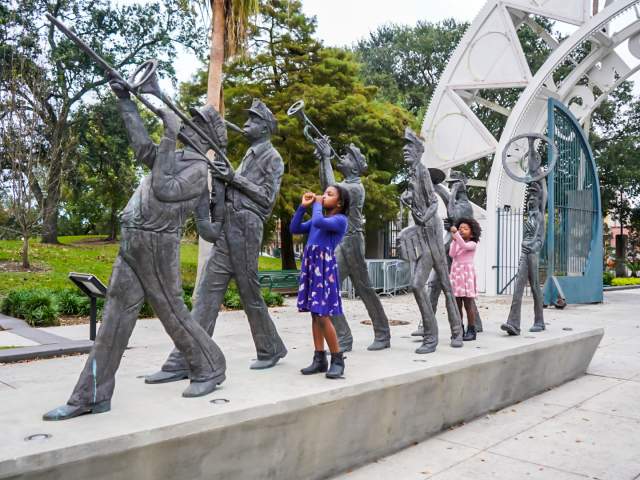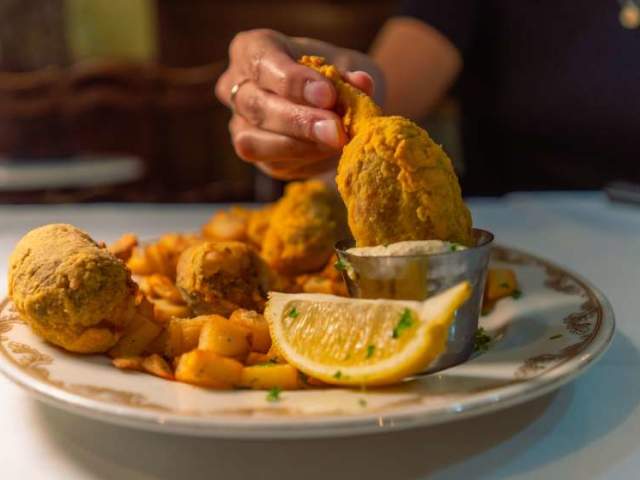New Orleans Black History Itinerary
Dive into New Orleans’ Black History with this guide
Black History is a living history composed of the past, present, and things to come. In New Orleans, there’s plenty of each. From the neighborhoods and streets you stroll, to the dances and songs you sing, and even the dishes you eat - Black History has and continues to pioneer the culture of the Crescent City. Let this Black History Itinerary not only guide you through an unforgettable visit to NOLA, but help you explore this integral side of the city’s history that has shaped its present.
Black Culinary Culture
Home to a number of phenomenal Black chefs and legendary cuisine, New Orleans takes great pride in the food they serve. Take a look at this short list of must-try, Black-owned restaurants. And for even more, check out our Black-Owned Food & Drink Tour here and the video below.
Dooky Chase's Restaurant
In addition to its famously delicious cuisine, and its matriarch the late Chef Leah Chase, Dooky Chase’s Restaurant played a vital role in the Civil Rights Movement. At the corner of Orleans Avenue and North Miro Street, Dooky Chase held and fed countless numbers of Civil Rights activists and revolutionaries. Today, the family-owned restaurant remains at its original intersection serving award-winning cuisine to a host of locals, visitors, politicians, and public figures. Just don’t make President Barack Obama’s mistake of adding hot sauce to the gumbo before you try it–the iconic chef famously scolded the 44th president for doing just that during a 2008 visit to the restaurant.
The Munch Factory
I could say that Beyoncé and Jay-Z dined here and that would be enough, but The Munch Factory’s famous patrons don’t just happen by accident. Owned and operated by Chefs Jordan and Alexis Ruiz, this eatery serves famous Creole favorites in an atmosphere that makes all guests feel like family. They are now located in Gentilly at Joseph M. Bartholomew Municipal Golf Course, named for the legendary African American golfer and architect. Black love is Black history, and The Munch Factory has and shares plenty of it.
Lil’ Dizzy’s Cafe
Approaching nearly 75 years in business, Lil’ Dizzy’s was set to close for good in 2020. The restaurant was saved by the next generation of Baquets, maintaining its status as a family favorite. The restaurant is humble, nothing fancy, but the food speaks for itself. Come for Creole dishes cooked straight from the heart, like gumbo, fried chicken, and red beans and rice.
Bennachin
Cameroon with a taste of the Crescent City is what you’ll find at Bennachin. This French Quarter favorite of travelers from far and wide specializes in Cameroonian and Gambian cuisine. Fu-fu, Jollof rice, and an assortment of other East African staples can be found here.
Dakar NOLA
For an elevated dining experience featuring Senegalese cuisine, Dakar NOLA is your spot. Chef Serigne Mbaye recently opened his Magazine Street location for business. With only one seating per night, dinner is served family-style with multiple courses. Enjoy culinary excellence and great company during your visit.
This is just a small taste of African and Black cuisine in New Orleans. For a full list of Black-owned restaurants to try during your next visit, click here.
Historical Walking Tours + Museums
Walking tours and museum visits are great ways to dive into New Orleans’ Black History. What might seem like a simple tradition or a regular attraction oftentimes is filled with rich heritage and historical context. Check out a few of the best places and people to learn more about Black history in New Orleans.
Louisiana Civil Rights Museum
A historic journey 30 years in the making, the Louisiana Civil Rights Museum is a space where you can come to learn about the state’s civil rights history. It all started with the Louisiana Civil Rights Trail, a project from Lt. Governor Billy Nungesser and the Louisiana Office of Tourism that was launched to memorialize the courage and determination of the people who fought for change. Visit the museum, website, and the trail markers throughout the state.

All Bout Dat Tours
Offering Black heritage and jazz tours of New Orleans that take you off the beaten path, Mikhala Iversen's All Bout Dat tours are some of the best in the city. Tour sites include historic Congo Square, where enslaved Africans gathered for song and dance on Sundays, the Tremé neighborhood, known as the oldest African American neighborhood in the U.S., and Bayou Road, where Black-owned businesses thrive. Don't miss your chance to take an All Bout Dat Tour while in New Orleans.
Tours by Judy
Highly recommended by The New York Times, Judy Geddes Bajoie is the owner + tour curator of Tours by Judy. A former history teacher and New Orleans native with southern hospitality, Judy’s tours are a true experience for her participants. Her Civil Rights Tours explore several events that foreshadowed the national Civil Rights Movement. Expect stops at Congo Square, the Mahalia Jackson Theater for the Performing Arts, Homer Plessy Way, and much more.
Mardi Gras Indian Museums + Tours
A truly fascinating and mostly hidden part of New Orleanian Black culture is Mardi Gras Indians. The footwork, beading, and second lines display the labor of love that these individuals pour into their crafts and culture, and the results are truly breathtaking. The Backstreet Cultural Museum and the House of Dance & Feathers are both amazing, Black-owned resources to learn more.
The McKenna Museum + Le Musée de f.p.c.
The George and Leah McKenna Museum of African-American Art collects, exhibits, and preserves a wide selection of African-American artwork. Its boutique-style space makes for intimate viewing. Similar in style, Le Musée de f.p.c. is a house museum dedicated to the legacy of free people of color.

Studio BE
The first solo project by local artist Brandan “B-mike” Odums, Studio BE is a powerful warehouse installation that explores Blackness from a local and national lens through visual art. Throughout the year, the space is also host to a number of Black business markets and Kwanzaa celebrations. Stop by and explore the collection individually or book a group tour with B-mike himself.
Amistad Research Center
The Amistad Research Center, located on Tulane University’s campus, is dedicated to collecting, preserving, and providing open access to original materials that reference the social and cultural importance of America's ethnic and racial history, the African Diaspora, human relations, and civil rights. It’s a must see for anyone interested in learning more about Black history.
TEP Center
The TEP (Tate, Etienne, and Prevost) Center is a renovated mixed-use facility housed in what used to be the historic McDonogh 19 Elementary School in the Lower Ninth Ward of New Orleans. The new mixed-use facility is a safe space built on anti-racist principles. It features education & exhibition space dedicated to the history of desegregation in New Orleans Public Schools, Civil Rights, and restorative justice. Take a tour of the building and learn its history, or visit for TEP Talks, held monthly.
Whitney Plantation
Just short of an hour’s drive outside of the city, Whitney Plantation is worth the trip. The house museum prides itself on being the only plantation in Louisiana with a focus on slavery. Its buildings, exhibits, and memorials are all first-person narratives of enslaved Africans. Tours, led by Senegalese historian Dr. Ibrahima Seck, are raved about by locals and visitors alike.
New Orleans Slave Trade Tour and Audio Guide
As a major port city, New Orleans played a significant role in the Trans-Atlantic slave trade. In fact, more men, women, and children were brought to New Orleans and sold in slave markets than any other city in the country. While this is a dark part of our city's history, it's also one that is crucial to recognize and learn from. This guide provides not only a map for self-guided tours, but also context, visuals, and first-person narratives of enslaved Africans and their journey to New Orleans, as well as their experiences once in the United States.
New Orleans African American Museum
The New Orleans African American Museum is dedicated to protecting, preserving, and promoting through education the history, art, and communities of African Americans in New Orleans and the African diaspora. The museum reopened in 2019 after a six-year closure and $2 million renovation.
For more heritage tours, see here for a full list.
Historically Black Neighborhoods & Their Landmarks
Tremé
Tremé, known as the oldest African American neighborhood in the U.S., is filled with hundreds of years of history. While strolling its streets you’ll come across significant landmarks like St. Augustine Church, the oldest African American church in New Orleans. You can walk through Congo Square in Armstrong Park, the place where enslaved people could gather to sing, dance, drum, and keep their African cultural traditions alive. While you’re in Tremé, remember that this is the neighborhood where some of New Orleans’ earliest jazz musicians began to play (and teach) the genre.
Central City
A former hub for the Civil Rights Movement has transformed into a stomping ground for second-line parades, Mardi Gras Indians, and up-and-coming Black entrepreneurs. While in Central City you would be remiss to not check out the beautiful murals along Oretha Castle Haley Boulevard and Martin Luther King Jr. Blvd. While you’re there, stop in Ashé Cultural Arts Center and discover what monthly programming is taking place.

Bayou Road
Nestled within Esplanade Ridge, Bayou Road is a stretch of land filled with Black-owned businesses, including shops, restaurants, clubs, and more. You can easily spend an entire day swept away in all that they have to offer.
When visiting NOLA’s neighborhoods, be sure to make note of streets and parks named after Civil Rights Leaders in New Orleans and plan to visit.
If all of this information is a little overwhelming, don’t fret—follow our NOLA on $50: Black-owned Business Edition itinerary for a cost-effective way to experience the food and culture of New Orleans’ Black heritage.
Celebrating Black History + Heritage
New Orleans is known for its fests! We celebrate everything from music, to food, cocktails, and even seasons. There are several festivals throughout the year that honor and celebrate Black culture and history. Keep these festival and event dates in mind for planning your trip to New Orleans, and click on each to learn more:
Algiers Mardi Gras Festival – January 27, 2024
Zulu Lundi Gras Festival – February 12, 2024
Congo Square Rhythms Fest – March 23-24, 2024
ESSENCE Festival of Culture – July 4-7, 2024
Satchmo Summerfest – August 2024 TBA
Praise Fest – October 2024 TBA
Tremé Fall Festival – October 2024 TBA
Tremé Creole Gumbo Fest – November 9-10, 2024
Bayou Bacchanal – November 2024 TBA
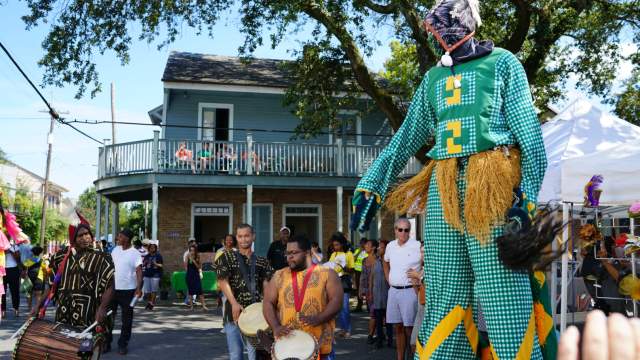
By no means does this guide cover everything - there is endless history to learn about and honor. For more inspiration, head over to our Black-Owned Business Directory and explore.
Below, find additional resources to dig deeper into NOLA’s Black history:
Self-Guided Black-Owned Food Tour
Sample pralines, crab fingers, fried okra, and shrimp & grits at these Black-owned restaurants.
Kid-Centric NOLA Black History Guide
Tour Tremé, visit Congo Square and explore New Orleans’ Black history with these…
Black-Owned Restaurants
These Black-owned dining establishments boast some of the best cuisine around - check out our guide…
